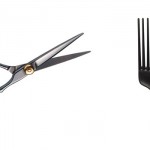
There is this notion that at a certain age, people are supposed to have their lives together and all figured out. This skewed view is a great source of anxiety and insecurity for a lot of people in their 20’s and 30’s who lack financial independence. But life is unpredictable. There is no guarantee as to what financial opportunity might come back up next for you. Allow yourself to rest easy, but not before learning skills and habits that will help you to grow your finances instead of remaining stagnant.
Here are seven rules that may be able to help you to rise out of financial stagnation and into financial independence.
Rule 1:
Never allow yourself to run out of money before you begin to find another source of income. If you choose to start your own business rather than work for someone, then start that. Do not allow yourself to get to the point where you become desperate to make money. This may ultimately lead you towards getting a job that you dislike. It’d be better if you still have the freedom to choose. Moreover, it’s okay to begin to search for other jobs when you are still working one.
Rule 2:
Diversify your income. Invest in multiple places. You don’t need to place all your money in the stock market, especially if you don’t know how it works yet, or you are still a beginner. The stock market might be for you to make quick cash. Long-term investments, although helpful, are not a money-making machine. Learn about the stock market and how to gradually increase your income. Invest also in low-risk investments like equity funds; or with savings apps like Piggyvest that give you interest when you save money with them long-term. You can then keep the rest of your cash in your bank account. A bank account that you can use as an emergency fund.
Rule 3:
It is okay to spend money on yourself and buy the things you want. Just don’t overdo it and render yourself broke. Invest in yourself. Invest in your scent, your skincare, or your outfits. But know where the limit lies. Otherwise, you risk running out of money quickly. It’s not every craving that must be satisfied.
Rule 4:
Do not, under any circumstances, invest in get-rich-quick schemes or pyramid schemes. If you lose your money, there is no one to complain to. This might scare you into being unwilling to take financial risks.
Rule 5:
Try to cut down on costs. Buy money-saving items instead. Instead of tampons and pads that may create waste, you can opt for a menstrual cup. Work towards building a house instead of thinking of moving into an expensive apartment that will stunt your financial growth.
Rule 6:
The small work experiences matter. Do not mind that the pay isn’t much. Sometimes, employers are impressed by a wide and varied range of work experiences. Look for work that interests you. That will serve as a great motivation to continue.
Rule 7:
Do not spend more than you earn. If the rate at which you spend money is more than your income, then how will you build wealth? Create a monthly or weekly budget if that will help you become more spend-conscious.







